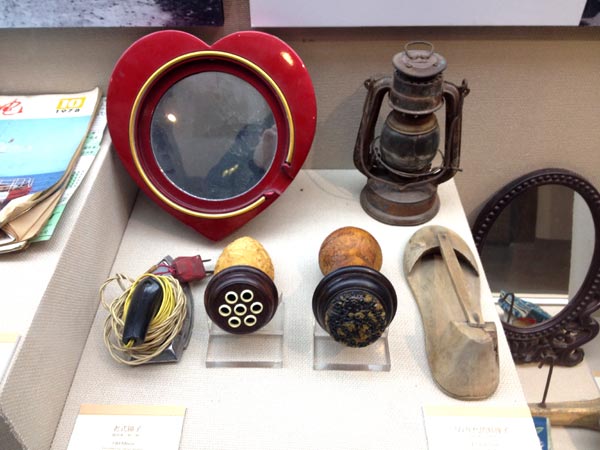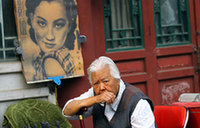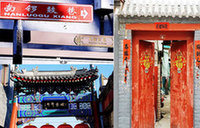Museum preserves hutong history
 |
|
Shijia Hutong Museum in an old courtyard home aims to preserve a slice of the city's past. Exhibits on display reveal a traditional lifestyle in China Daily] |
Beijing's hutong, the traditional narrow alleys that wind through the city, are struggling to survive, slowly disappearing in the name of modernization.
But the local community of Shijia Hutong has found a way to preserve its slice of old Beijing.
The Shijia Hutong Museum-Beijing's first museum themed on one specific hutong-has been running for one month at the Courtyard No 24 of Shijia Hutong, Dongcheng district.
The museum is a joint project between the Prince's Charities Foundation China and the Chaoyangmen subdistrict government. It is a community museum to document ShijiaHutong's history and culture, and enhance the quality of local community life.
The project is there sultofa meeting between the United Kingdom's Prince of Wales and China's then-president Hu Jintao in London in April 2009. They exchanged views about the preservation of Beijing's hutong.
As one of the oldest hutong in Beijing, Shijia Hutong was initially built in the Yuan Dynasty (1271-1368) and renovated in the Ming Dynasty (1368-1644). Many celebrated Chinese figures such as intellectuals and officials once lived here.
The Courtyard No 24 was once owned by the writer couple Chen Xiying (1896-1970) and Ling Shuhua (1900-90).From 1958 to 2002 the courtyard was reused as a kindergarten after the couple moved to the UK. Since then, the house has been left unused and in need of renovation.
"We follow two fundamental principles on the project-to restore the courtyard as authentically as possible by using traditional Chinese craftsmanship and local materials; and to incorporate as much green technology-geo-thermal for example-as possible into the buildings," says the Prince's Charities Foundation China Beijing representative Matthew Hu.
"We create a modern building in terms of its use and relevance; but in the style it is entirely keeping with the heritage tradition of the hutong," says James Furse, executive director of the Prince's Social Enterprises and director on the board of Prince's Charities Foundation China.
"It's not just a museum; it's about capturing the essence of the community today by placing it in the context-partly of the past, mostly of the present and the future," he says.






















